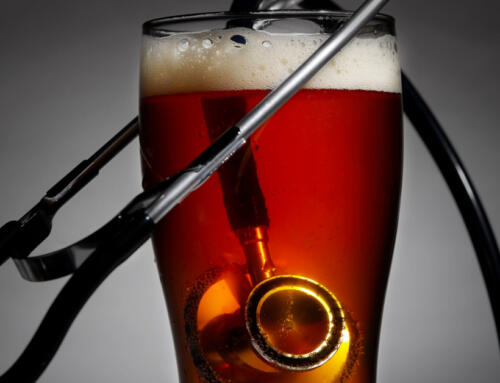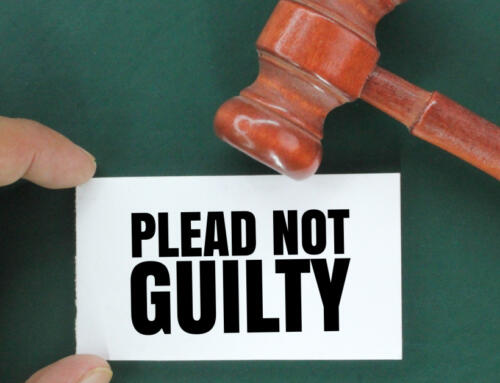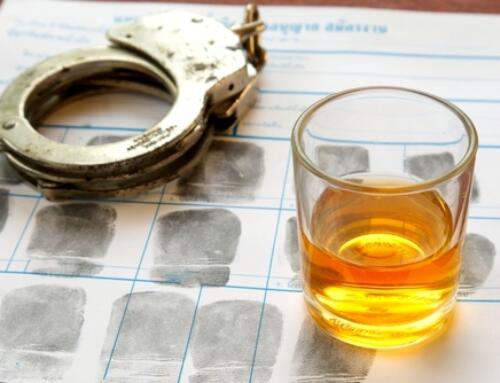You can face different DUI charges in Pennsylvania based on your blood alcohol concentration (BAC). The higher your BAC, the more serious the charge—and the greater the penalties on the table.
You can also face a DUI charge even if your BAC isn’t over the legal limit. This is a type of “general impairment” DUI, as discussed in greater detail below. If your alcohol consumption has “rendered [you] incapable of safely driving, operating or being in actual physical control of the movement of the vehicle,” then you can be found guilty of DUI regardless of your BAC.
But, for purposes of this article, we are focusing on BAC-related DUI offenses—and, as a practical matter, most DUI charges are based on the defendant’s BAC. If you got arrested because your BAC was over the legal limit, here’s an overview of what you need to know:
Pennsylvania’s Three Levels of DUI Offenses
1. General Impairment
The lowest level DUI offense in Pennsylvania is referred to as “general impairment.” Under Section 3802(a) of the Pennsylvania Statutes, you can be charged with a “general impairment” DUI if either:
- Your consumption of alcohol “rendered [you] incapable of safely driving;” or,
- Your BAC is at least 0.08% but less than 0.10% within two hours of driving.
For a first offense, a “general impairment” DUI is an ungraded misdemeanor offense. If you get convicted of a “general impairment” DUI, you can face up to six months of probation, a $300 fine, and mandatory alcohol education and treatment. However, if you have a prior DUI on your record, you can face up to six months in jail and up to a $2,500 fine (along with other consequences). The penalties are even more severe if you have two or more prior DUIs on your record.
2. High Rate of Alcohol
The second DUI offense level in Pennsylvania is classified as a “high rate of alcohol.” Under Section 3802(b) of the Pennsylvania Statutes, you can be charged with a “high rate of alcohol” DUI if your BAC is at least 0.10% but less than 0.16% within two hours of driving.
For a first offense, a “high rate of alcohol” DUI is still an ungraded misdemeanor, but the penalties increase substantially as compared to those for “general impairment.” If convicted of a “high rate of alcohol” DUI, you can face up to six months in prison, a 12-month driver’s license suspension, a $5,000 fine, and other penalties. For a second offense, the penalties are similar, but you are facing a minimum of 30 days in jail. Third and subsequent offenses are classified as first-degree misdemeanors, and they carry up to five years in prison and a $10,000 fine (along with other consequences).
3. Highest Rate of Alcohol
If your BAC is 0.16% or above within two hours of driving, you can be charged with a “highest rate of alcohol” DUI under Section 3802(c) of the Pennsylvania Statutes. The maximum penalties for a “highest rate of alcohol” DUI are similar to those for a “high rate of alcohol” DUI, but the minimum sentences are more significant for first-time and repeat offenders.
Other Types of Drunk Driving Offenses in Pennsylvania
Along with the Commonwealth’s three levels of DUI offenses, the Pennsylvania Statutes also establish various other types of drunk driving offenses. Rather than being based on a driver’s BAC, these offenses are based on the circumstances surrounding the driver’s arrest. For example:
- DUI with a Minor Passenger – If you have a passenger under age 18 in your vehicle, you are at risk for enhanced penalties regardless of your BAC. For a first or second offense, DUI with a minor passenger is a first-degree misdemeanor. For a third or subsequent offense, it is a third-degree felony that carries up to a $15,000 fine and seven years of prison time.
- Aggravated Assault by Vehicle While DUI – If you cause an accident while driving under the influence, you can be charged with aggravated assault by vehicle. This is a second-degree felony that carries up to a $25,000 fine and 10 years of prison time.
- Homicide by Vehicle While DUI – If you cause a fatal accident while driving under the influence, you can be charged with homicide by vehicle. In most cases, this is a second-degree felony that carries up to a $25,000 fine and a minimum of three years of prison time. However, with a prior conviction, homicide by vehicle while DUI can be prosecuted as a first-degree felony that carries from five to 20 years.
Defending Against a DUI Charge in Pennsylvania
Regardless of your specific charge, you need to defend yourself by all means available. All types of DUI charges carry serious penalties in Pennsylvania, and even if you can avoid jail (or prison) time, a conviction can still negatively impact all aspects of your life.
While there are several ways to fight DUI charges in Pennsylvania, not all defenses are available in all cases. To determine what defenses you can use to fight your DUI charge, you must promptly discuss your case with an experienced defense lawyer. Your lawyer can determine if you have grounds to assert defenses such as (but not limited to):
- Challenging the accuracy or reliability of your BAC reading;
- Challenging the government’s evidence that you were “driving” or “in actual physical control” of a vehicle;
- An unconstitutional traffic stop or arrest that renders the government’s evidence inadmissible in court;
- Prosecutorial misconduct that renders the government’s evidence inadmissible in court;
- Actual innocence or other issues with the government’s evidence prevent the prosecution from proving your guilt beyond a reasonable doubt.
Discuss Your Case with Philadelphia DUI Lawyer Brian Fishman
If you are facing any DUI charge, you need experienced legal representation. Brian Fishman is a former Philadelphia prosecutor with over a decade of experience defending clients against DUI and other serious criminal charges. To confidently discuss your case with Brian as soon as possible, call 267-758-2228 or tell us how we can reach you online now.






